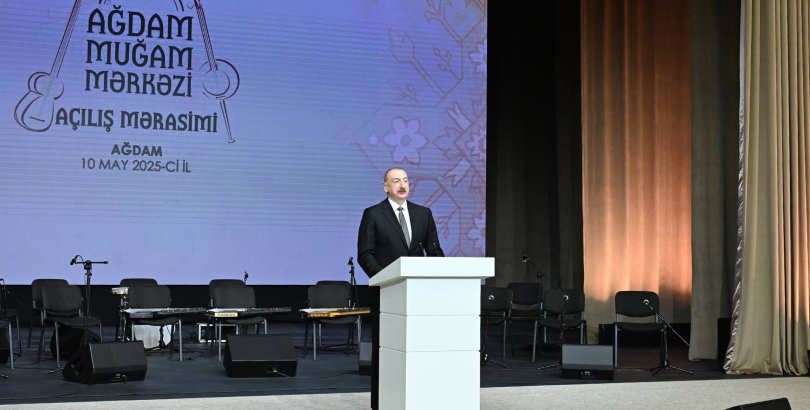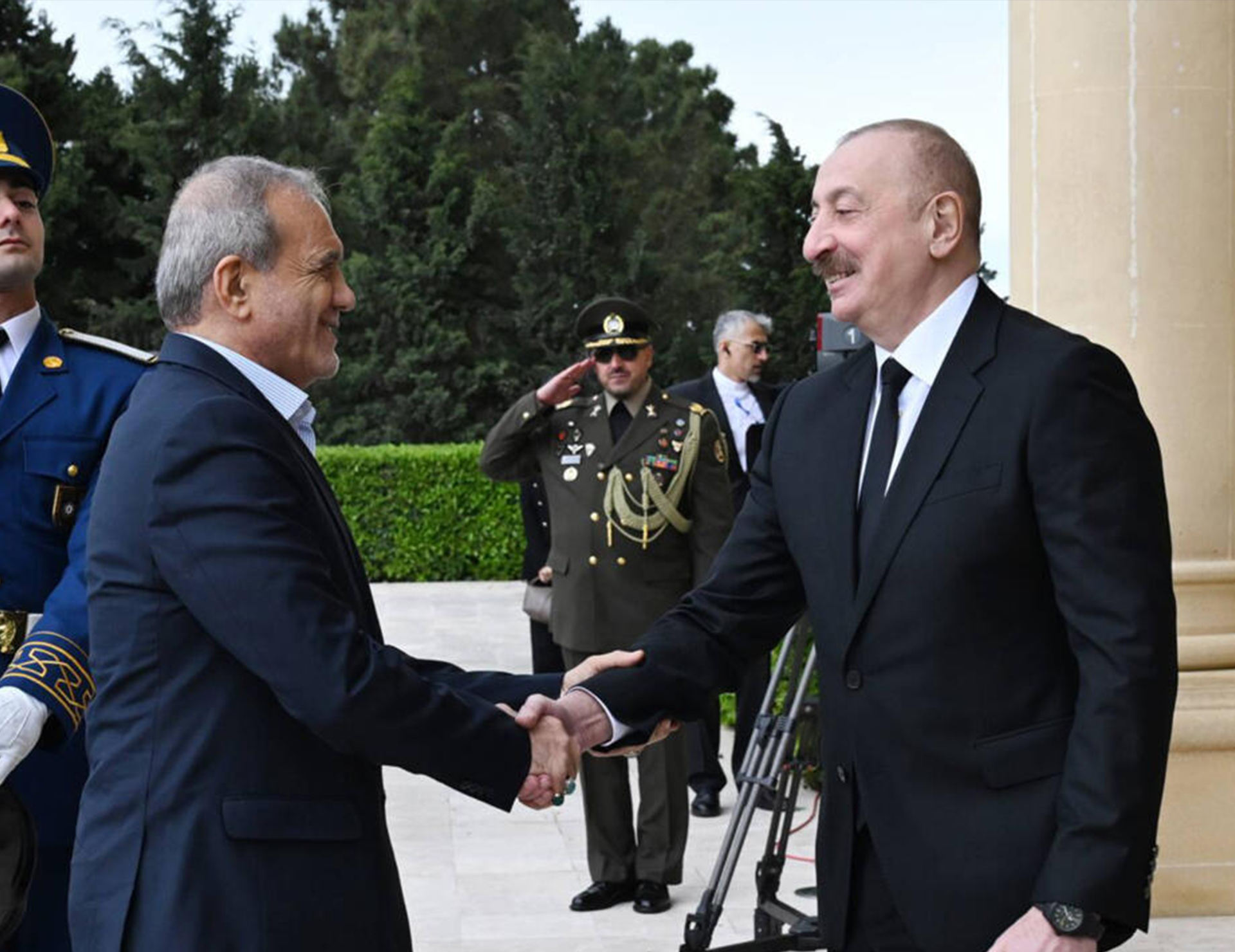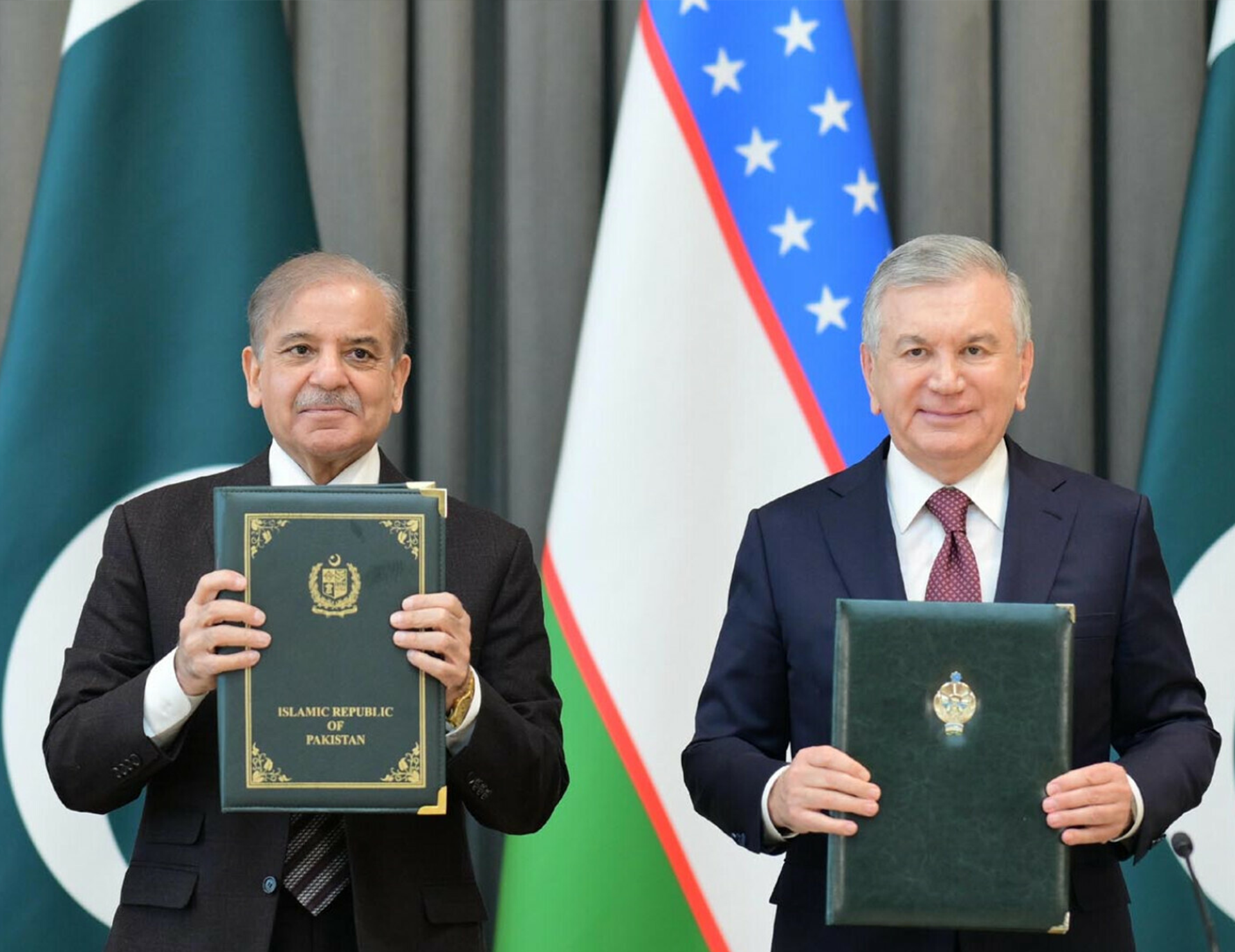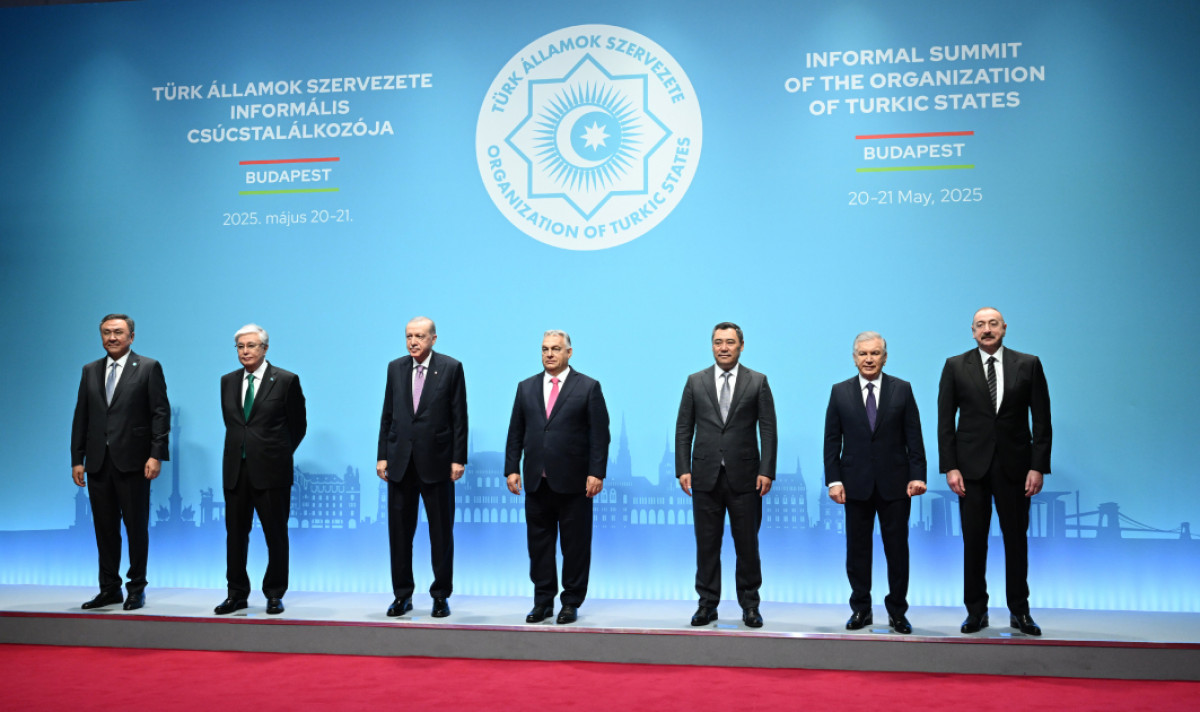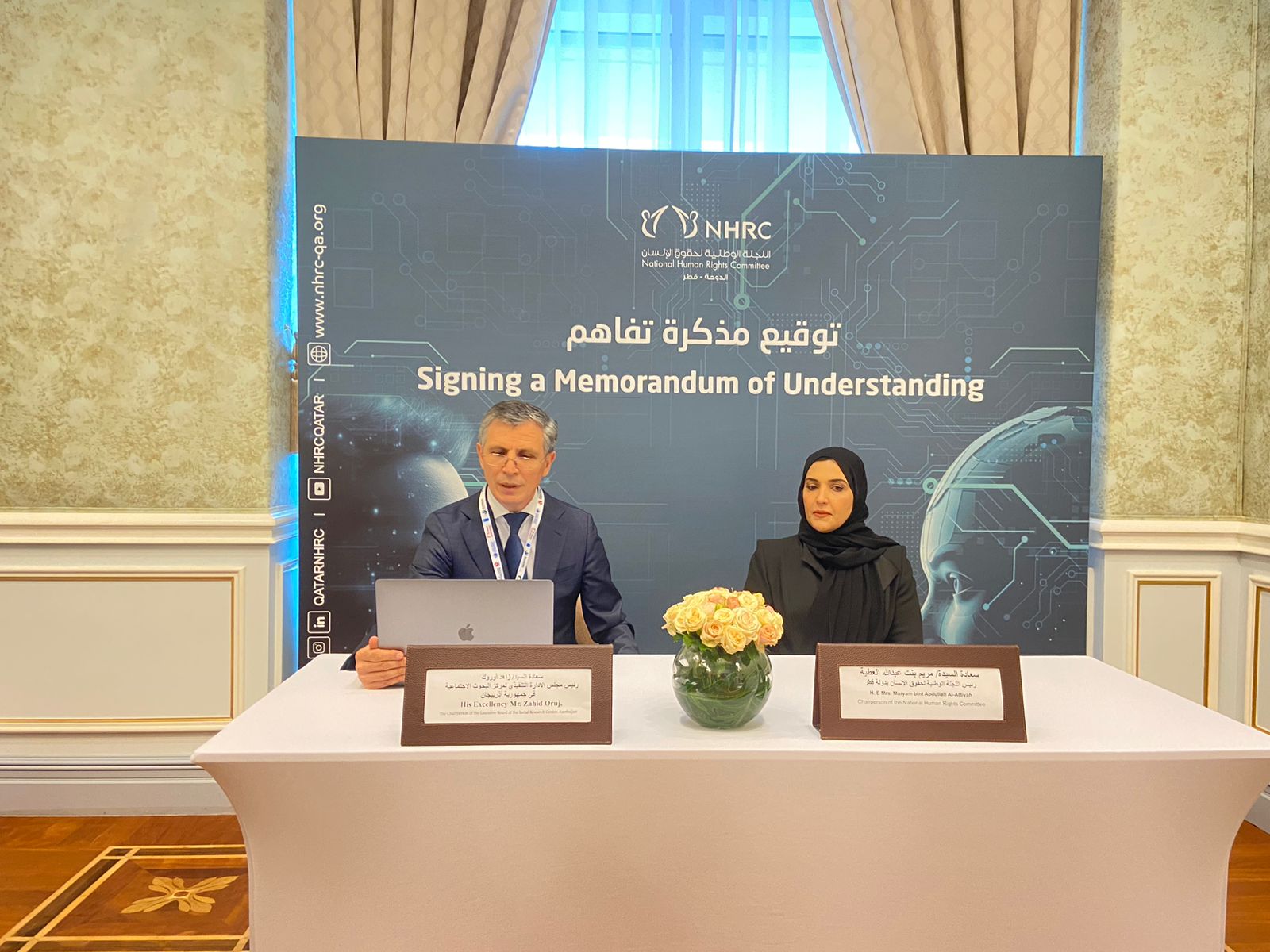President Ilham Aliyev’s visit to the region, following the reconstruction and reopening of the Aghdam Mugham Center, was far more than the inauguration of a cultural venue. It served as a powerful political message—one deeply rooted in Azerbaijan’s national memory and the broader process of Karabakh’s revival. For Azerbaijan, mugham is not merely a musical genre—it is a vessel of history, heritage, and collective memory. When mugham resounds in Aghdam, it becomes the voice of justice, breaking through the silence left by three decades of occupation. The President’s visit should be seen as a vivid demonstration of Azerbaijan’s cultural diplomacy in the post-war era. It made one thing clear: the rebirth of Karabakh is being achieved not only through the reconstruction of infrastructure, but also through the renewal of the region’s spiritual and cultural foundations.
The messages conveyed during the visit were directed both at a domestic audience and the international community. When the head of state declared, “We have returned and we are here to stay,” it wasn’t merely a passionate statement—it was a carefully calibrated stance, both strategic in intent and powerful in its ideological significance. It also sent a clear signal to Armenia and its supporters: Karabakh is no longer a conflict zone. It is transforming into a space of progress and cultural renewal.
The Mugham Center in Aghdam is more than just a stage for musicians—it stands as a powerful symbol, a cultural monument rising from the ruins of a once-devastated city. Its opening represents a spiritual triumph for the Azerbaijani people.
This visit also underscored the central role that culture plays in state policy. Cultural expressions like mugham—deeply woven into the fabric of national heritage—require more than preservation; they must be nurtured and kept alive to be passed down to future generations. In this sense, the launch of the Center serves as a living history lesson for those yet to come.
President Ilham Aliyev’s visit was a vivid expression of the political will driving the effort to build a new life in Karabakh following the Second Karabakh War. As the President has emphasized on numerous occasions, the revival of the liberated territories must go beyond physical reconstruction—it must be grounded in a solid foundation of ideology, history, and spiritual identity. This very vision was clearly embodied in his visit and the opening of the Center in Aghdam.
Today, Azerbaijan is experiencing one of the most dynamic and self-assured chapters in its history. The nation’s strength is measured not only by its military capability, but also by its cultural and ideological depth. Within this context, the Aghdam Mugham Center stands as both a culmination and a fresh beginning—bridging the lessons of the past with a deep sense of confidence in the future.
The new reality Azerbaijan is shaping in the region extends far beyond military or political dimensions—it is also unfolding in the realms of culture and national identity. Karabakh is regaining its spiritual wholeness. Such a transformation is only possible through firm political resolve and a unified national will.
In this context, the President’s visit to the Mugham Center stands as a lasting example of the vital role culture plays within the nation’s political strategy. It reflects a deep reverence for Azerbaijan’s heritage, its history, and its people. The sound of mugham once again echoing in Aghdam is the voice of Azerbaijan’s national will.
This visit also reinforces a fundamental truth: the return to Karabakh is not just territorial—it is a return in every sense, physical, spiritual, and ideological. The Azerbaijani people are reclaiming not only their land but also their roots and their identity.
Azerbaijan’s spiritual and political return to Karabakh closely aligns with its growing stature on the international stage. The country’s policy of reconstruction and cultural revival in the region is gradually becoming a global example—a model capable of capturing the attention of the international community. History has rarely witnessed such rapid recovery and national development in the aftermath of war. Azerbaijan’s approach stands out as a compelling model for countries seeking to rebuild and heal their post-conflict societies. Elevating culture to the level of strategic policy is not merely a governmental initiative—it is a powerful tool for strengthening governance and fostering national unity. Today, the world is beginning to see Azerbaijan not just as an energy powerhouse, but also as a cultural exporter. This shift is a clear testament to the success of the country’s soft power strategy, which it has pursued with consistency and intent.
Azerbaijan is confidently fulfilling its historic mission—not only within the region, but across the broader Eurasian landscape. Its economic growth, firm stance on security, and leadership in international initiatives are complemented by proactive efforts in the cultural sphere. The integration of culture into political strategy is a cornerstone of Azerbaijan’s new direction, reflecting the country’s modern strategic identity.
The mugham performed at the Aghdam Center carries a message to the world—a call for peace, stability, and respect for heritage.
Azerbaijan’s successful model has already begun to attract the attention of international organizations such as the United Nations and others. In particular, its experience in post-conflict recovery is drawing interest on global platforms. This is of immense significance, not only for strengthening the country’s domestic policy but also for elevating its standing on the world stage. Culture’s role in shaping civil society plays a vital part in this process, lending added momentum to Azerbaijan’s progress.
Thus, mugham becomes the voice of Azerbaijan’s spirit—a powerful expression of its will and a message of enduring significance addressed to the entire world.
Azerbaijani mugham is one of the most treasured and distinctive jewels of the nation’s musical heritage. It is more than an art form; it is a reflection of cultural layers, lived experience, and the depth of human emotion. The strength of mugham lies in its simplicity and depth—it nourishes the soul, stirs introspection, and reveals the inner world of the listener.Its power also stems from the unique way it is performed. Mugham artists inhabit the music fully, body and soul. That’s why mugham is experienced not merely as a genre, but as a mood, a philosophy—even a way of life. This art form transcends the boundaries of time and space, capturing the subtle dimensions of human moral and emotional states.One of the most vital dimensions of mugham is its social and cultural role. It has been instrumental not only in shaping Azerbaijan’s national identity but also in uniting its people. Through its performance, the traditions of the past intertwine with the spirit of the present—blending ways of thinking, philosophies of life, and cultural continuity. This makes mugham a cornerstone of both national independence and the country’s societal development.
Equally important is mugham’s educational role, particularly in nurturing younger generations. For aspiring performers, mugham is not merely a musical style—it is a school of culture and spiritual growth.
In Azerbaijan, mugham is far more than melodies and instruments. It lives deep within the hearts of those who perform and those who listen. It embodies the nation’s moral compass, conscience, and worldview. Mugham invites introspection and inspires individuals to ascend to a higher level of spiritual awareness.
Azerbaijani mugham will forever remain a powerful expression of cultural strength—the spirit of a people, their historical journey, and their vision for the future.
Tural Ismailov
SRC Sector Head

